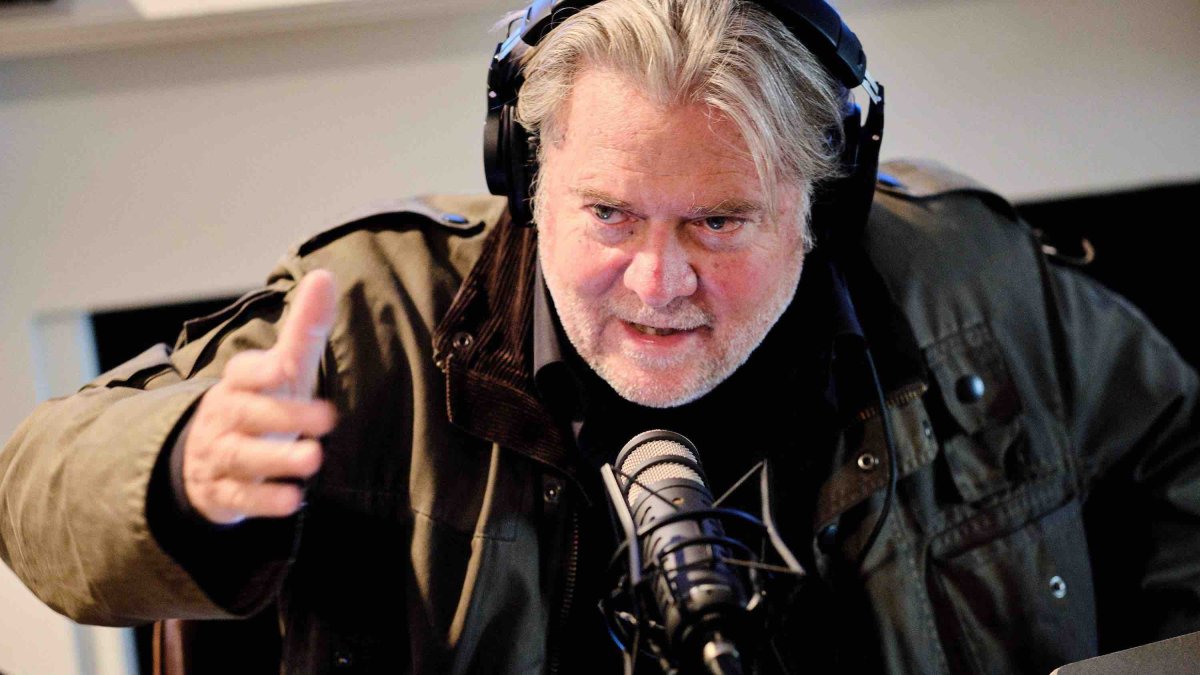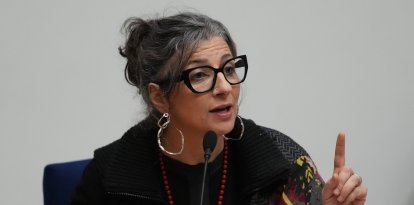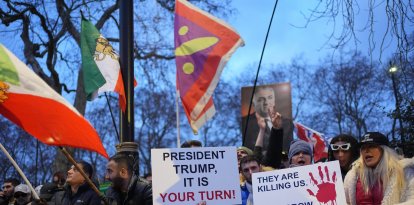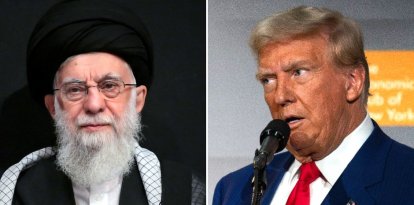Steve Bannon, Biden's political prisoner?: The case explained step by step
The Department of Justice deals a significant blow to former President Trump's campaign by silencing Steve Bannon.

Steve Bannon | Photo: T.J. Kirpatrick / ©Showtime / courtesy Everett Collection
Federal Judge Carl Nichols' recent decision to send Steve Bannon to prison has opened the discussion around civil and political liberties in the United States. Bannon, who could go to jail on July 1 unless an appeals court or a higher court prevents him from doing so, would become the last and most recognized advisor and ally of former President Donald Trump to end up behind bars.
A first-class debater, Steve Bannon established himself as one of the most influential voices on the right, not only in the United States but in the world. Now, D.C. District Attorney Matthew Graves can leave him without a voice, just in the months leading up to the presidential elections in November of this year.
Although it is Bannon who ends up behind bars, his absence from the media, and in particular from his influential podcast "War Room," means a serious blow to the Trump campaign.
The January 6 committee, a witch hunt
Despite the fact that Bannon was barely in Donald Trump's White House for seven months, the January 6 Committee, which was irregularly constituted in Congress as it was made up of seven Democrats and two Republicans, decided to investigate the one who, in 2017, served as an advisor to the president.
The committee, which promised to bring justice to those who caused the events of January 6, 2021, at the Capitol, has gone after the former president's aides. Dan Scavino and Mark Meadows, the communications chief and chief of staff, respectively, were pursued. However, the hard blow fell on two other allies or former allies of the White House: Peter Navarro and Steve Bannon.
A renowned economist, Peter Navarro served as director of the White House Office of Trade and Manufacturing Policy. On February 9, 2022, the committee summoned Navarro to testify for his alleged participation in a scheme to ignore the electoral results of the 2020 elections. In hiding behind his executive privilege, Navarro did not respond to the summons and, therefore, was declared in contempt. Joe Biden's Department of Justice echoed this, ignoring the executive privilege argument and deciding to go after Navarro. In June 2022, Peter Navarro was arrested. In January of this year, he was sentenced to four months in prison. He began serving his sentence in March.
The case is no different from that of Steve Bannon. The January 6 Committee also summoned him, and he did not attend, following the recommendations of his then-lawyer, Robert Costello, who explained to Bannon that he was "immune to the demands of the panel" of the committee.
"There’s not a prison built or a jail built that’ll ever shut me up"
In October 2021, Bannon was arrested for "contempt of Congress." A few months later, in July 2022, the former Trump advisor was found guilty of two counts by a federal jury. Then, the Department of Justice, in its closing arguments, said Bannon had "chosen loyalty to Donald Trump over compliance with the law."
Prosecutor Matthew Graves, in a statement, said at the time that "Mr. Bannon had an obligation to appear before the Committee to give testimony and provide documents. His refusal to do so was deliberate and now a jury has determined that he must pay the consequences."
For his part, Bannon responded to the jury's verdict: "We may have lost the battle today, but we are not going to lose the war."
District Judge Nichols announced the sentence three months later: four months in prison and a $6,500 fine. For the Department of Justice, Bannon should receive the harshest sentence possible: six months in prison and a $200,000 fine. Bannon responded to the ruling by stating that he respected the judge but not the system.
The commentator tried to appeal, which allowed him to keep the application of the sentence in suspense for several months. Judge Nichols allowed Bannon to await his appeals in freedom. But seeing that none of them prospered, he decided, at the beginning of June of this year, to order him to prison as soon as possible. The sentence already seems inevitable unless a higher court gets involved in the remaining days.
Bannon responded strongly, as he usually does. He hopes his case reaches the Supreme Court. For him it is clear: "They want to silence the MAGA movement, they want to silence conservatives and President Trump."
"There is nothing that can shut me up and nothing that will shut me up. There’s not a prison built or a jail built that’ll ever shut me up," he said.
Persecution against Trump
For Alfonso Aguilar, president of the Latino Partnership for Conservative Principles, former head of the Citizenship Office of the George W. Bush administration and commentator for Voz News, it is clear that the case against Steve Bannon is framed within political persecution.
The first thing to remember, he insists, is the irregularity surrounding the constitution of the Committee for January 6: "Then-Speaker of the House, Nancy Pelosi, vetoed two of the members nominated to the Committee by the Republican leader, while she appointed two anti-Trump Republicans to the Committee, which is unprecedented."
Aguilar says, "it is unusual that Biden's Department of Justice has decided to prosecute Bannon for not appearing before the Committee after being summoned."
"In more than forty years, the Department of Justice had not prosecuted someone for failing to appear at a congressional hearing. It is clear that he was charged for the sole reason of being a conservative pro-Trump activist," he said.
The double standard was also exposed when the Department of Justice recently declined to prosecute Attorney General Merrick Garland, who had also been held in contempt by Congress due to his decision not to make public the audio of Joe Biden's interview with special counsel Robert Hur.
Like Bannon and Navarro, Garland brandished executive privilege so as not to defer to Congress. But it did work for him.
In its editorial, the Washington Times said on June 10, after Judge Nichols' decision on Bannon's prison sentence was announced, "the population of political prisoners in the United States has grown by one."
"To imprison someone for this misdemeanor is out of character for a prosecutor whose serial refusal to pursue real crimes has inspired unprecedented car thefts and burglaries in DC," the paper reads.
The newspaper also recalls that many Democrats have "defied the legislative branch's subpoenas, but none of them have been handcuffed or had their home raided," like Hillary Clinton, Eric Holder, Lois Lerner and Mark Pomerantz.
"It is up to the public to contact their representative to convey the importance of taking steps to restore an impartial justice system. That restoration should begin by ensuring that Mr. Garland is held to the same standards he uses against his political opponents," the Washington Times concludes.

























